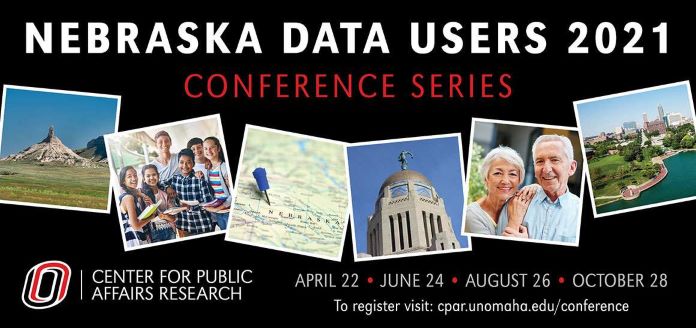Human Trafficking and the T Visa Process: Insights from Legal Representatives Working with Victims from Latin Ameria
Start Date
24-6-2021 10:30 AM
End Date
24-6-2021 11:00 AM
Description
Human mobility, in its different manifestations — international and domestic migration; refugees, asylum seekers, and displaced populations; and human trafficking — is at the center of many political and public debates. In two research presentations by UNO faculty, the demographics of highly mobile populations will be explored as well as the impacts of mobility on communities in Nebraska. Human trafficking occurs when traffickers use force, fraud, or coercion to compel individuals to provide labor or services—broadly known as labor or sex trafficking. Traffickers often take advantage of individuals who are perceived as vulnerable, including those lacking immigration status. In response, the United States Congress created a T nonimmigrant status (also referred to as a T visa) in October 2000 to protect immigrant victims and to strengthen law enforcement’s ability to investigate these crimes. The current study sought to examine the trafficking experiences of foreign national victims from Latin America specifically by interviewing legal representatives who assist these individuals in Nebraska. These representatives were selected due to their intimate knowledge of the T visa process and their unique position to identify human trafficking victims during legal consultations. Interviews were conducted via Zoom with six individuals who provided rich insights into 22 cases involving victims of human trafficking from Latin America. The findings include an overview of the legal representatives who encountered these cases, describes the trafficking experience of victims from Latin America, explores the challenges of filing for a T visa, examines the role of service providers in addressing clients’ needs, and reviews the legal representatives’ perceptions of barriers to trafficking cases. The report concludes with policy implications that are useful to individuals or institutions (e.g., agencies, legal representatives, law enforcement) in anti-trafficking initiatives.
Human Trafficking and the T Visa Process: Insights from Legal Representatives Working with Victims from Latin Ameria
Human mobility, in its different manifestations — international and domestic migration; refugees, asylum seekers, and displaced populations; and human trafficking — is at the center of many political and public debates. In two research presentations by UNO faculty, the demographics of highly mobile populations will be explored as well as the impacts of mobility on communities in Nebraska. Human trafficking occurs when traffickers use force, fraud, or coercion to compel individuals to provide labor or services—broadly known as labor or sex trafficking. Traffickers often take advantage of individuals who are perceived as vulnerable, including those lacking immigration status. In response, the United States Congress created a T nonimmigrant status (also referred to as a T visa) in October 2000 to protect immigrant victims and to strengthen law enforcement’s ability to investigate these crimes. The current study sought to examine the trafficking experiences of foreign national victims from Latin America specifically by interviewing legal representatives who assist these individuals in Nebraska. These representatives were selected due to their intimate knowledge of the T visa process and their unique position to identify human trafficking victims during legal consultations. Interviews were conducted via Zoom with six individuals who provided rich insights into 22 cases involving victims of human trafficking from Latin America. The findings include an overview of the legal representatives who encountered these cases, describes the trafficking experience of victims from Latin America, explores the challenges of filing for a T visa, examines the role of service providers in addressing clients’ needs, and reviews the legal representatives’ perceptions of barriers to trafficking cases. The report concludes with policy implications that are useful to individuals or institutions (e.g., agencies, legal representatives, law enforcement) in anti-trafficking initiatives.


Comments
Associated video lection can be found here on YouTube.
See more about this report here.
Cristián Doña-Reveco, Ph.D. | Director, Office of Latino/Latin American Studies; Associate Professor, Department of Sociology; University of Nebraska at Omaha
Doña-Reveco researches emigration decisions and migration policies, as well as contemporary Latinos in Nebraska.
Teresa Kulig, Ph.D. | Assistant Professor, School of Criminology and Criminal Justice, University of Nebraska at Omaha
Kulig's research focuses on the nature of human trafficking, theories of victimization, and measurement.